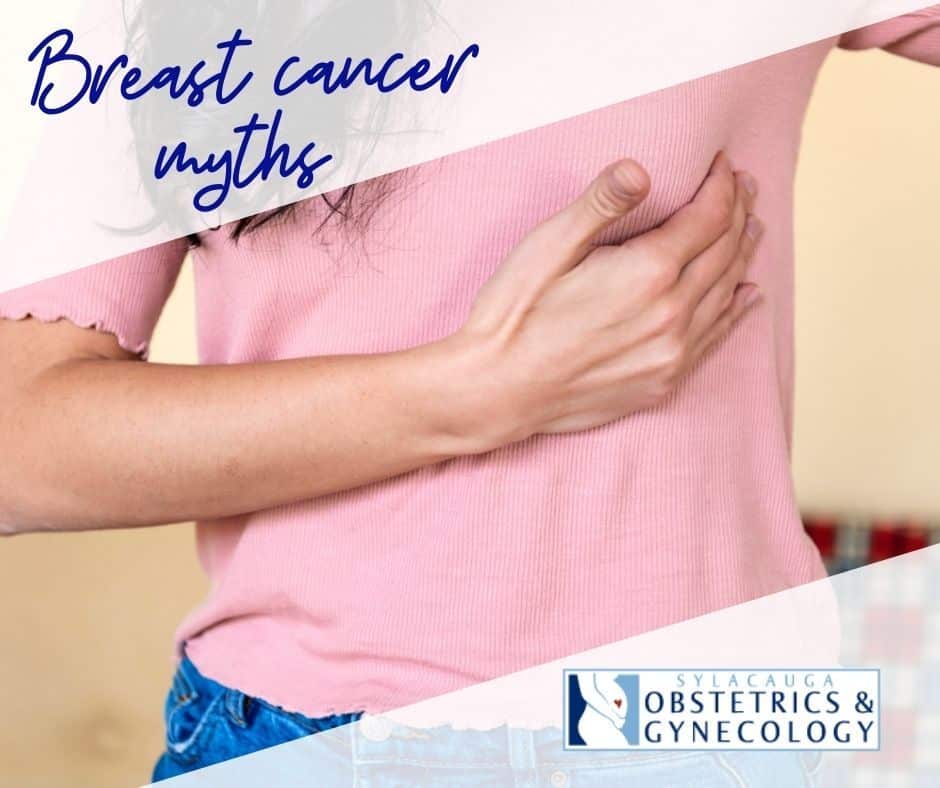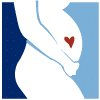
12 Sep Four breast cancer myths debunked
October is Breast Cancer Awareness Month, so you will undoubtedly be reading some of the same information over and over again from multiple sources on the internet. While this information is helpful for awareness, we want to talk about something different regarding breast cancer: breast cancer myths.
But first, please let us reiterate the following information about breast cancer awareness and detection:
- Yes, it’s important to get an annual mammogram, starting from the age of 40.
- Yes, you should be doing a self-examination of your breasts in the shower each month, regardless of your age (once you’ve reached puberty.)
- Yes, you should participate in healthy habits such as eating well and exercising to lower your risk of overall cancer.
That said, we’re going to address some breast cancer myths that our team and other health professionals commonly hear from our patients. You know, the half-truths you read about on Facebook, the information passed from friend to friend until it becomes “truth” in some circles and the things we heard and learned on the playground as children. Some of these myths are dangerous, while others are just plain wrong and deserve an explanation.
Top myths about breast cancer
Myth #1: You can get breast cancer from using the wrong kind of deodorant, or using deodorant with aluminum.
The real scoop: there is no evidence in any recent medical research literature that any of this is true. A study was performed in 2002, which compared several women with breast cancer to a similar number of women without breast cancer. They found absolutely no link at all between breast cancer and deodorant or even underarm shaving. (Another myth is that shaving causes you to have small nicks where the deodorant can enter your body more easily.)
Myth #2: I’m only at risk if I have a history of breast cancer in my immediate family.
The real scoop: the truth is, in many cases, breast cancer is not related to genetics. That’s why it is important to continue with self-exams and yearly mammograms, even if no one in your family has ever had breast cancer.
Myth #3: I’m feeling pain in my breast; that must mean I have cancer.
The real scoop: you’ll be glad to know that most breast pain is NOT cancer. There are many reasons you can have pain in your breasts – hormone levels such as puberty or just before your period, fibrous tissue cysts, and other factors can cause benign breast pain.
All of this said, there is a small chance that the pain in your breast could be a malignancy, so you should always consult with your gynecologist whenever you feel pain, if for no other reason than peace of mind.
Myth #4: Eating sugar will cause cancer to grow in my breasts
The real scoop: although a balanced diet low in sugar and high in fruits, vegetables, and lean protein is great general diet advice for anyone, sugar in your diet does not give you cancer. Now, consuming a lot of sugar can contribute to obesity, which IS a risk factor for cancer. So watching your diet and getting plenty of exercise is one of the best things you can do to help prevent cancers of any type.
Why all the myths about breast cancer anyway?
Fear is a strange thing. When you hear a fearful piece of information, some people tend to take it as fact and pass it along to friends and family, as though they’re doing them a favor by sharing these “cautionary tales.” Remember that just because someone tells you a “fact” or you read about it on Facebook doesn’t make it true!
The goal of National Breast Cancer Awareness Month is to educate the public about breast cancer, dispel myths, and help people take care of their bodies to help avoid cancers of any kind. Read up on the causes and risk factors that can lead to breast cancer — the things you CAN control, do them. Eat healthy, balanced meals, work exercise into your daily routines, and don’t over imbibe in alcohol consumption.
And while you’re at it, pass along this article to your friends and family and help become part of the real support system for the breast cancer community.
As always, if you have any questions or concerns about breast cancer, contact your trusted health care provider or gynecologist here at Sylacauga Obstetrics & Gynecology.
Visit Sylacauga Obstetrics & Gynecology for your breast health
Your gynecologist can perform the diagnostics necessary to ensure you have healthy breasts. Visit Sylacauga OB-GYN for your breast exams, mammograms, and all other female-related healthcare. Sylacauga OB-GYN is your small-town doctor with big-city medicine! Reach out to us today here or at 256-249-6995.


